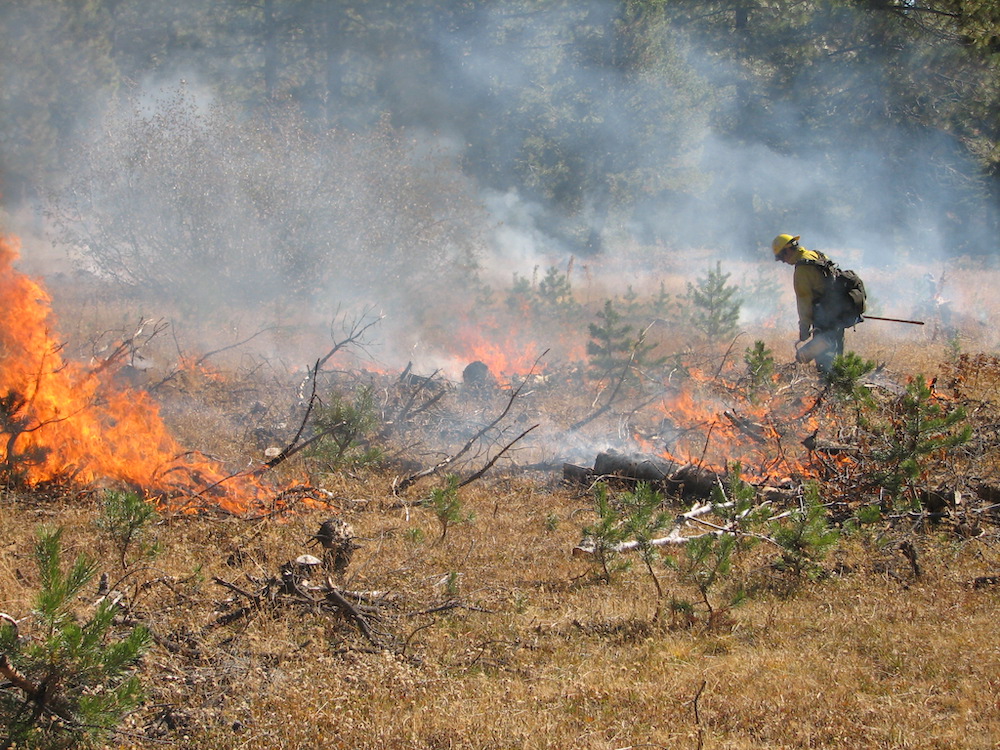The passage of the Infrastructure Investment and Jobs Act (IIJA) affirms a longstanding reality: America’s forests are critical infrastructure for our country. Even better, this legislation invests in forests with a breadth and scale to match the critical challenges of this moment, including natural climate solutions, wildfire, biodiversity, green jobs and more.
This starts with keeping our national forests covered in trees. At American Forests, we’ve been tireless champions for the REPLANT Act, working closely with the bill’s sponsors on its key provisions and helping to lead the advocacy effort from the first day of introduction. We know a thing or two about reforestation and healthy forests, having helped with reforestation projects on two-thirds of America’s national forests. So trust us when we say the passage of REPLANT is a truly transformational moment, enabling the U.S. Forest Service and partners like us to reforest these threatened lands at a pace never before possible. This is needed because wildfire, drought, pests and disease now decimate millions more acres of national forest each year than previously, fueled by climate change. We need national forests, not national burn scars. With President Biden set to sign the infrastructure bill, making REPLANT into law, we will finally be able to catch up and keep up with reforesting these treasured public lands.
But REPLANT is just the beginning. In total, this legislation will lead to 14.8 million acres of forest reforested and restored and will utilize trees to bolster climate resilience. From our rural communities to towns and cities across the country, our trees will be put to work helping to secure a healthier future.

Photo Credit: United States Forest Service
This includes unprecedented reforestation funding far beyond our national forests. IIJA appropriates $200 million to reforest abandoned mineland, an effort American Forests has helped pioneer in states such as West Virginia, Kentucky and Missouri. To make sure we have enough seedlings to plant, and the right ones in the right places, IIJA includes $200 million in funding for America’s national seed and seedling strategy.
Our nation’s natural landscapes are in desperate need of support, and IIJA rises to meet the call. With $2.57 billion for post-fire recovery and burned area rehabilitation and $5.16 billion for hazardous fuels reduction and vegetation management, the funding allocated through this bill will go not only to recover lands affected by catastrophic wildfire, but to better defend our landscapes and our forests. With $100 million allocated for the time-tested Collaborative Forest Landscape Restoration Program that develops restoration in collaboration with local communities; over $1.5 billion for state and private forest restoration; and $200 million for tribal forest restoration priorities, IIJA provides a multi-pronged defense to restoring and arming America’s susceptible ecosystems.
To help utilize the wood material being taken out of fire-prone forests, the IIJA makes game-changing investments to energize climate smart use of wood. IIJA includes $460 million for wood innovation, such as innovative uses of byproducts from tens of millions of acres of public and private forest restoration. Not only will REPLANT and wildfire resilience actions lead to healthier forests which will support more carbon capture, investments in our urban trees are also vital to bolstering natural resilience in vulnerable communities. A new Healthy Streets program will put the power of trees to work together with new technologies like cool or porous pavements to better arm urban neighborhoods against drought, flooding or other climate-change related events. An additional $490 million in natural infrastructure resilience to reduce flooding and manage stormwater will also support urban forests and tree planting.
The IIJA is a groundbreaking bipartisan acknowledgement of climate change and its impacts, providing more new funding for climate projects than ever before in United States history. By 2030, these investments will lead to more than 180 million metric tons of carbon dioxide equivalent stored. That is equivalent to 39 million passenger vehicles driven for one year.
We are grateful to the many congressional leaders who brought this bipartisan solution to the finish line, including the REPLANT Act’s bicameral and bipartisan lead sponsors — Senator Debbie Stabenow (D-MI), Senator Rob Portman (R-OH), Representative Jimmy Panetta (D-CA), and Representative Mike Simpson (R-ID), along with many other cosponsors and supporters.
America’s trees are critical to the nation as natural infrastructure and climate solutions, and this unprecedented funding will return dividends for years in lives saved, carbon sequestered, jobs created and forests restored. Yet the need for reforestation as a solution for the climate crisis needs further bolstering. The Build Back Better (BBB) Act would make additional, vital investments in climate smart forestry provisions, helping to aggressively address wildfire prevention and restoration; incentivizing private forest landowner carbon smart practices; reducing temperatures in urban heat islands to advance environmental justice and quality of life; authorizing a civilian climate corps to create jobs for our next generation of conservationists; and restoring landscapes through reforestation, forest maintenance, and seed and seedling capacity building.
Together, the Infrastructure and Build Back Better bills would provide the largest investment for climate smart forestry in U.S. history, offering an urgently needed one-two punch to advance forest-climate solutions across nearly 57 million acres and increase carbon capture in our forests by 12 percent by 2030 — a cumulative 654 million metric tons carbon dioxide equivalent emissions reduction.
This is a moment of celebration and a moment to urge Congress to carry the essential climate smart forestry funding in Build Back Better across the finish line to combat the climate crisis and conserve, restore and grow America’s forests for our future.